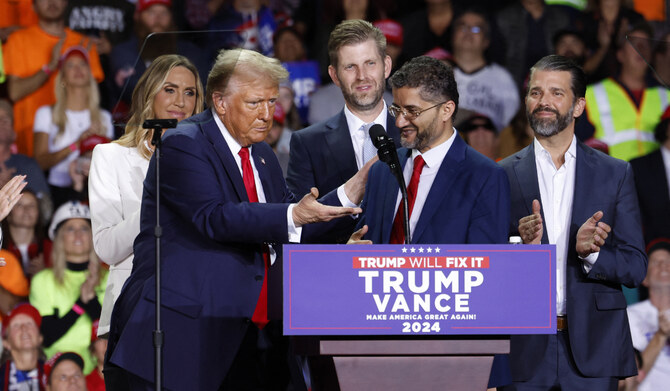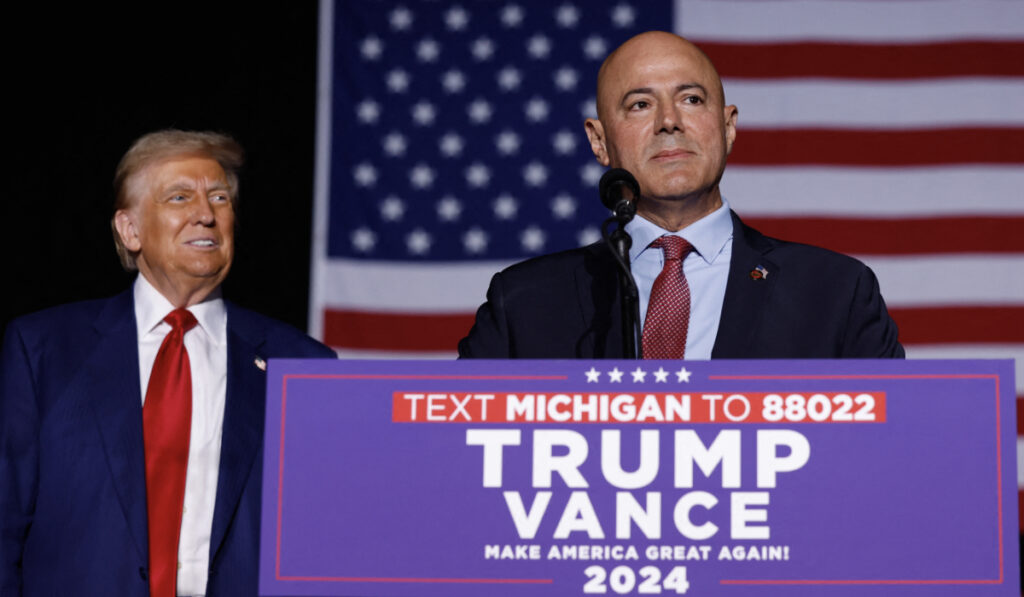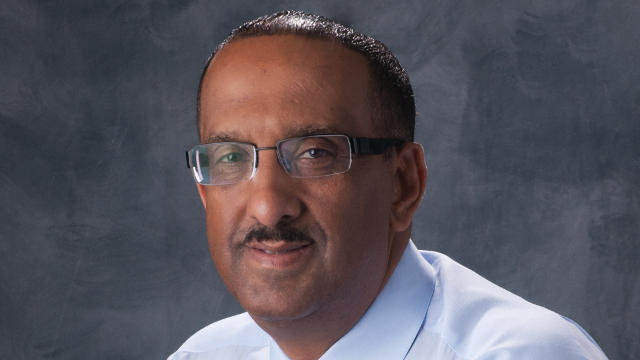Amer Ghalib and Bill Bazzi were among a number of Muslim leaders from the state who publicly endorsed Trump for the presidency last year
‘It’s a great honor to have the trust of the president,’ Ghalib tells Arab News. ‘I will utilize my skills … to strengthen the relationship between’ the US and Kuwait
_________________
FAST FACTS
• Amer Ghalib, who became mayor of Hamtramck in November 2021, is the first Arab American and Muslim to hold the office in the city.
• Bill Bazzi, who was born in Lebanon, was appointed mayor of Dearborn Heights in January 2021 following the death of the incumbent and won the election for the office in November that year.
___________
Amer Ghalib, the mayor of Hamtramck, Michigan, said on Friday he was “honored” to be nominated by President Donald Trump for the post of US ambassador to Kuwait.
Meanwhile, Bill Bazzi, the mayor of Dearborn Heights, also in Michigan, was nominated by Trump this week to serve as the US envoy to Tunisia.
Arab American Muslims Ghalib and Bazzi were among the Michigan officials who publicly endorsed Trump for the presidency last year over Joe Biden and Kamala Harris.
“It’s a great honor to have the trust of the president placed in me to represent our great county and serve as the next ambassador to the State of Kuwait,” Ghalib told Arab News on Friday.
Bazzi did not respond to Arab News when asked to comment on his nomination, but in a message posted on Facebook, he wrote: “I am honored and appreciate President Donald Trump’s appointment to serve as US Ambassador to Tunisia.
“Among the distinct countries I have visited over the years, I hold a great affinity to Tunisia and its honorable parliament, elected officials, educators, and other industry leaders — along with the people I met while touring orphanages, women’s career institutions, schools, and a multitude of companies which distinguish the country’s rising presence in the region.
“With my visits overseas, the cohort’s visits to the US, and the relations we have established over the years, I am excited to return and honorably represent our Country in Tunisia as its US Ambassador. My purpose is to continue serving in capacities which make an impact, promote peace and diplomatic partnerships, which benefit our Country and enhance global relations.”
Trump wrote on social media platform X: “Bazzi is a decorated US Marine, who honorably served our Country for 21 years, collaborating with US Embassy Ambassadors, Diplomats, and Leaders throughout the world.”
Bazzi, who was born in Bint Jbeil, Lebanon, was appointed mayor of Dearborn Heights in January 2021 following the death of the incumbent and won the election for the office in November that year. He had previously served as the temporary chairperson of Dearborn Heights City Council since 2017.
Bishara Bahbah, the founder of Arab Americans for Trump, an organization that worked in several states to rally Arab and Muslim American elected officials and leaders in support of Trump’s presidential campaign, praised the appointments of Ghalib and Bazzi as “a demonstration of the president’s commitment to the Arab and Muslim community.”
He told Arab News: “Arab Americans for Peace, formerly Arab Americans for Trump, is delighted with President Trump’s nomination of two distinguished Arab American mayors from Michigan as the new ambassadors to Kuwait and Tunisia.
“Both men risked their political careers, having been elected as Democrats to their posts. Mayor Bazzi and Mayor Ghalib are outstanding individuals who wanted to see the end of the wars in both Gaza and Lebanon.”
The nominations reflect the growing influence of Arab Americans in US politics, Bahbah said, and are “a testament to the newfound power of Arab Americans in this past US presidential election and future presidential elections.
“We are confident that both mayors will be effective ambassadors representing the best interests of the United States. Their Arab backgrounds will undoubtedly help foster better US-Kuwaiti and US-Tunisian diplomatic relations.”
The nominations must now be considered and approved by a majority vote in the US Senate.
source/content: arabnews.com (headline edited)
____________

US President Donald Trump introduces Democratic Muslim mayor of Hamtramck Amer Ghalib during his last campaign rally at Van Andel Arena in Grand Rapids, Michigan on November 5, 2024. (AFP file photo)

Dearborn Heights, Michigan, Mayor Bill Bazzi†speaks as U.S. President Donald Trump listens during a campaign rally at Suburban Collection Showplace on October 26, 2024 in Novi, Michigan. (AFP file photo)
____________________________________
AMERICAN / LEBANESE / YEMEN
